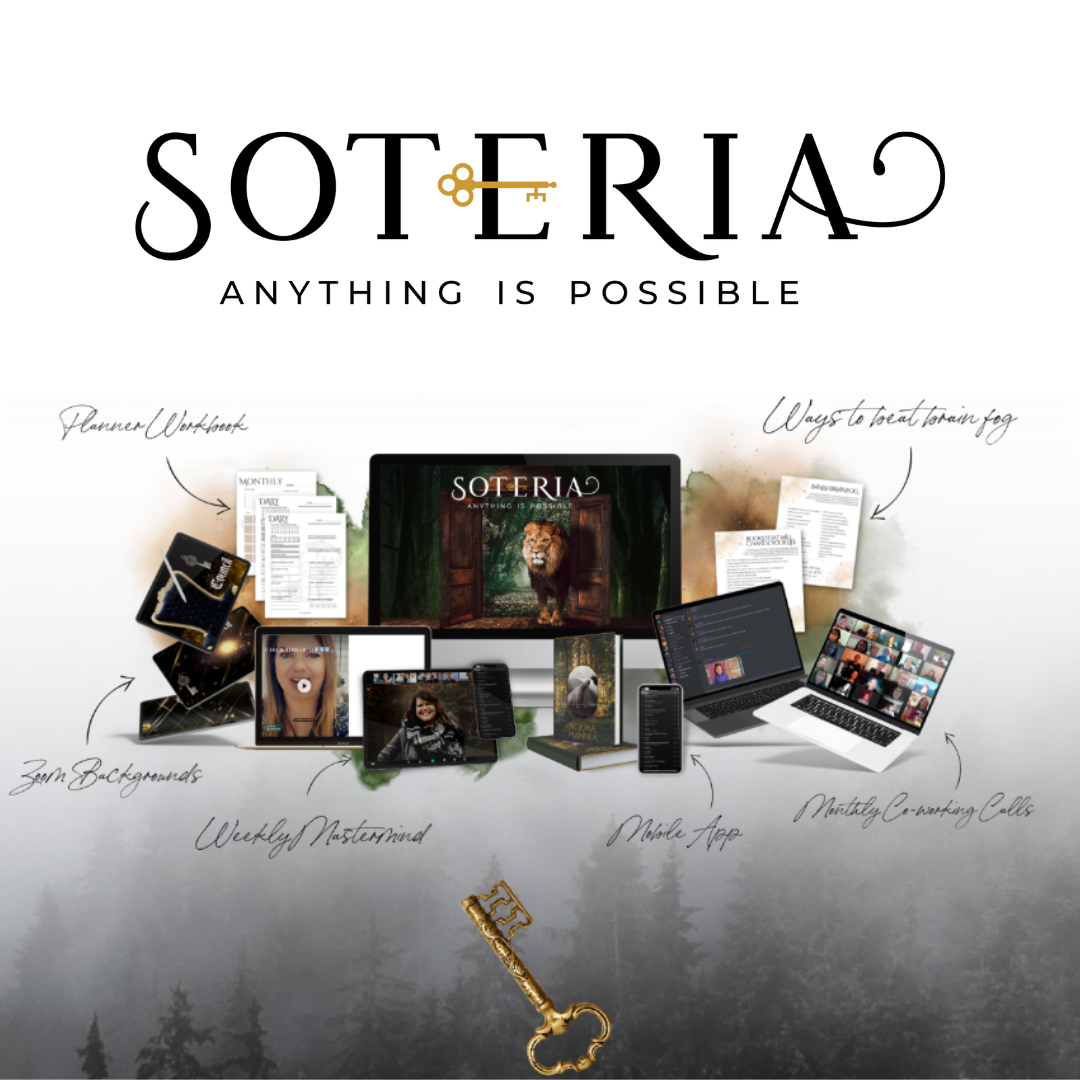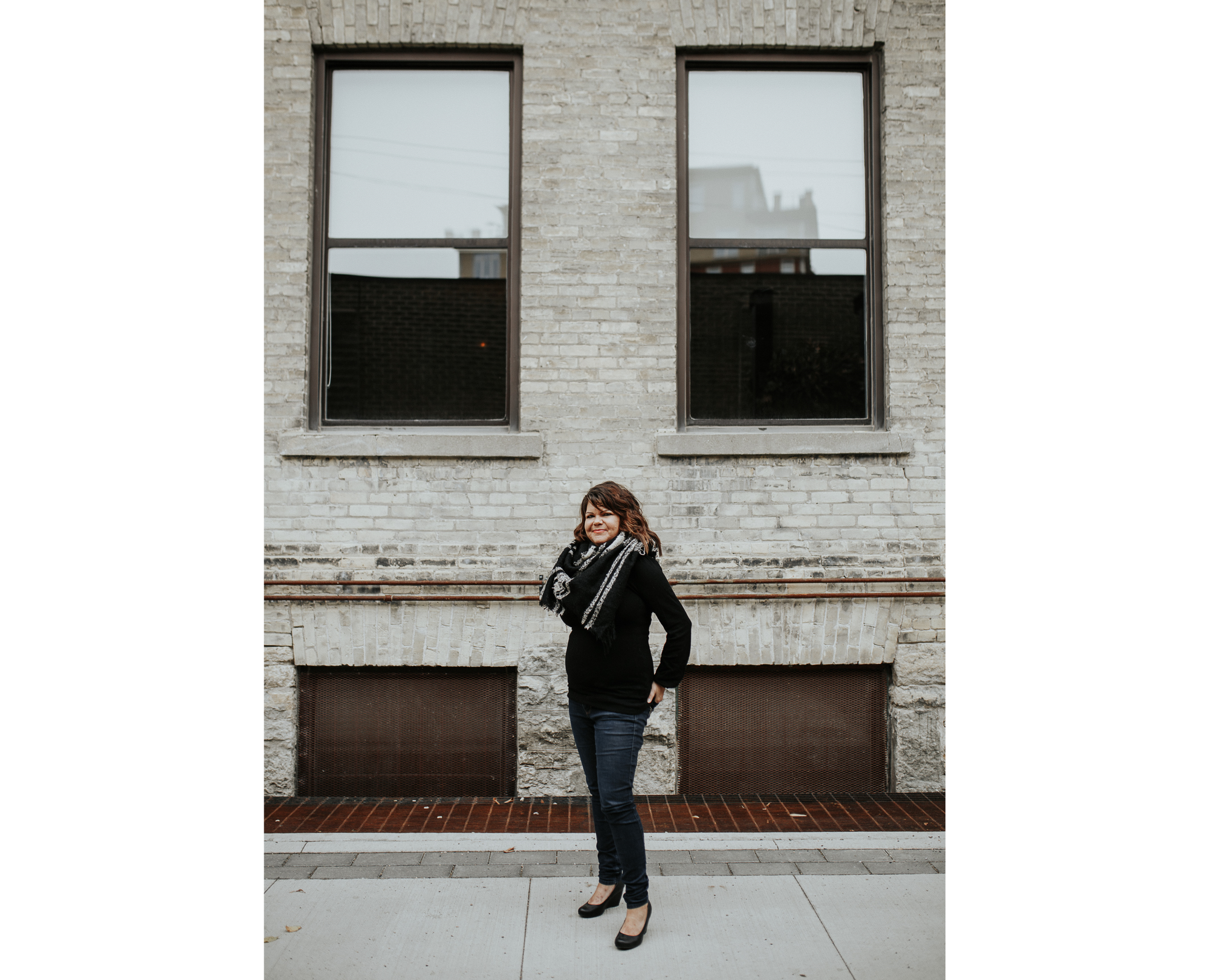Interested in starting your own entrepreneurial journey but unsure what to expect? Then read up on our interview with Michelle Virog, Founder of Soteria, located in Winnipeg, MB, Canada.
What's your business, and who are your customers?
My business is called Soteria. It's a virtual support community, resource hub, and motivation spot for entrepreneurs living with chronic illness. Being a powerful virtual membership, we provide our members with a safe space to come, connect with others experiencing similar setbacks in our chat community and bi-weekly check-in calls. We help members by providing them with super simple resources to manage their business AND their health in the easiest ways possible. We know and understand that people in this situation struggle with a limited amount of energy because I've lived my entire life in the same situation.

Tell us about yourself
I am the creator and founder of Soteria. I came up with the idea for Soteria while discovering my spiritual side. I have been working in digital marketing, social media, and content creation for over 7+ years, have gone through hundreds of courses, and trained with multiple top experts... but I found that something was missing in all of them. That support for people living with a chronic illness. Most members were so focused on "hustle and grind" while I often had to take time off for my health.
I live with chronic kidney disease and have to do hemodialysis every other day. I've been on dialysis for almost 13 years now (11 years of peritoneal dialysis), and it definitely affects my focus and my energy levels. I also deal with anxiety, panic disorder, and anemia. I've faced a LOT of stigma in corporate positions about my health and my attendance, often missing out on promotions and raises. The fact is that most people living with a chronic illness end up working for themselves because they cannot accommodate a 9-5 schedule. They face discrimination and stigma and are generally let go because of appointments, treatments, and attendance.
The idea for Soteria is a combination of what I have learned in terms of simplifying my business AND creating meaning using spiritual symbolism. I wanted to create an environment that feels safe and comfortable while also feeling otherworldly and empowering. Soteria is a culmination of a large vision that I hope to grow worldwide in order to change people's lives, bring people together, and provide the much need support for those facing this situation. Because together, anything is possible.
What's your biggest accomplishment as a business owner?
I think being able to bring on a team and hire people that believe in my vision just as much as I do. Not only does it help to hand off some of the workloads, but they are passionate about achieving the same goals. Spreading awareness about this cause and this issue has been a mission for me my entire life. There's a gap that needs to be addressed about communicating the issues that those living with a chronic illness face on a daily basis, and I'm working hard to bridge that gap and make a difference in people's lives as well. When someone tells me that I've inspired them, it fills my soul.
What's one of the hardest things that comes with being a business owner?
When you're starting out, and you don't have a team, it's hard to difficult to be the ONE person to do ALL the things. You're the salesperson, the marketer, the bookkeeper, the website designer, the copywriter, the customer service, and so much more. You really have to manage your time and be strategic about how you use your energy, and divide your attention to each task. Especially being an entrepreneur living with a chronic condition, it's even more difficult because many days I have to do a dialysis treatment or lack focus and need to take a day off.
What are the top tips you'd give to anyone looking to start, run and grow a business today?
- Document your journey through social media. People LOOOVE following a story, and it helps ramp up your following and waitlist when people are following your journey early. They can see all the hard work you put in and then get excited to come to see you when you launch/open.
- Start an email list early. Start a waitlist and resend your social media posts. Give people a promotion or benefit of some kind to sign up to your email list. Then just send out monthly newsletters with stories and announcements. But if you ever get locked out of your social media account (which has happened to me and almost every business owner I know...), you still OWN your email list.
- Treat your business as a startup, not as a coach or freelancer. I wish I had known this in the beginning. By going in as a startup, it opens up an entire world of resources (such as funding) and access to accelerators and a community that want to see you thrive. It also helps you learn proper business practices, such as how to manage your finances, creating a business plan, pitch deck, and so much more. Things that are not taught in MOST digital courses.
Where can people find you and your business?
Website: https://www.michellevirog.com/
Facebook: https://www.facebook.com/michelle.virog/
Instagram: https://www.instagram.com/michellevirog/
LinkedIn: https://www.linkedin.com/in/michellevirog/
If you like what you've read here and have your own story as a solo or small business entrepreneur that you'd like to share, then please answer these interview questions. We'd love to feature your journey on these pages.
Turn your craft into recurring revenue with Subkit. Start your subscription offering in minutes and supercharge it with growth levers. Get early access here.
